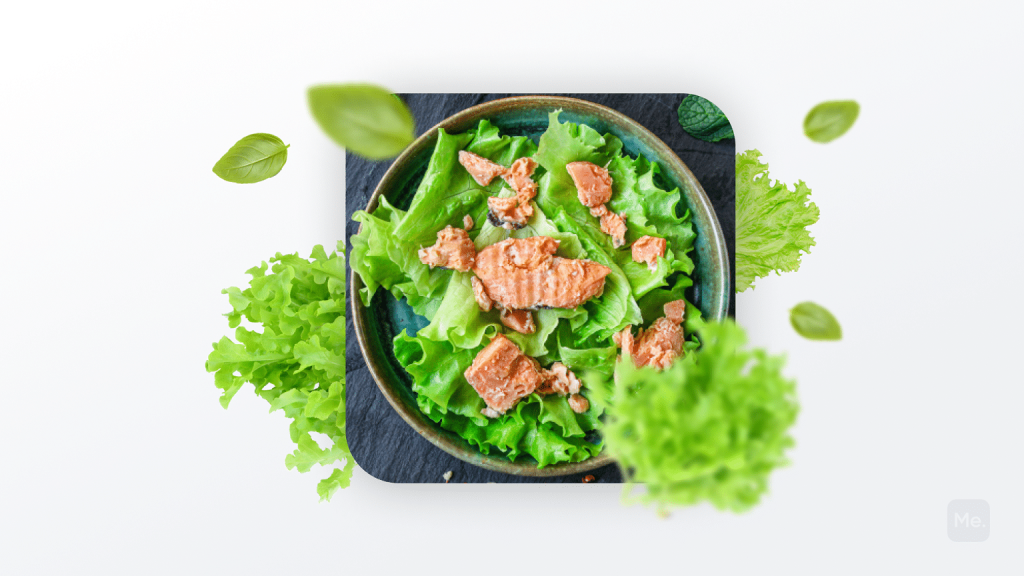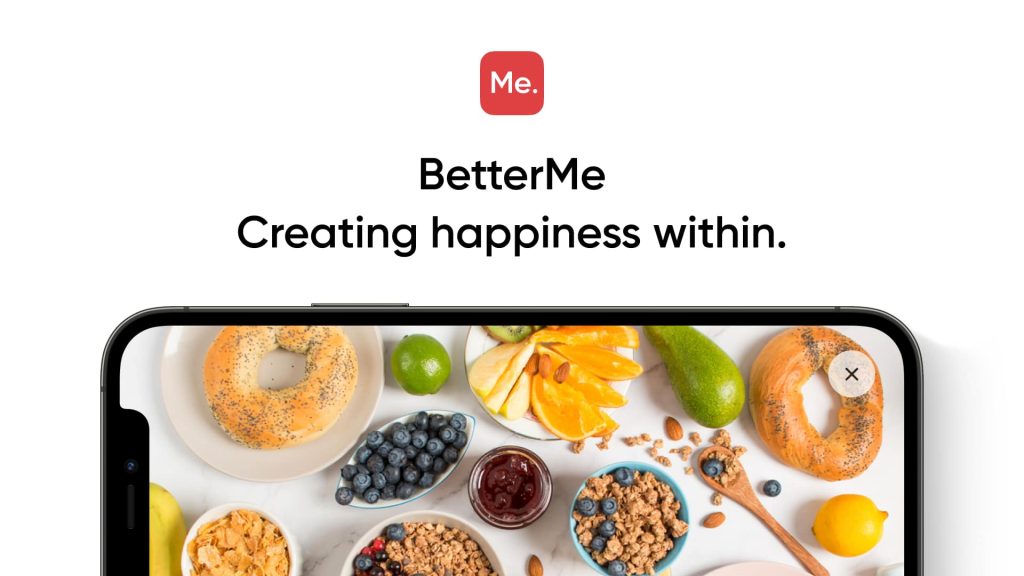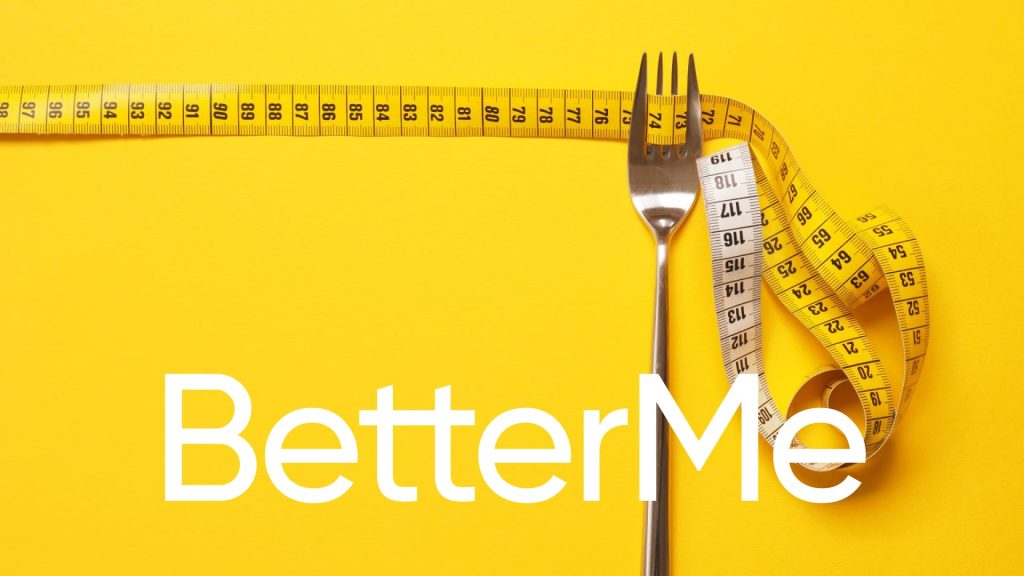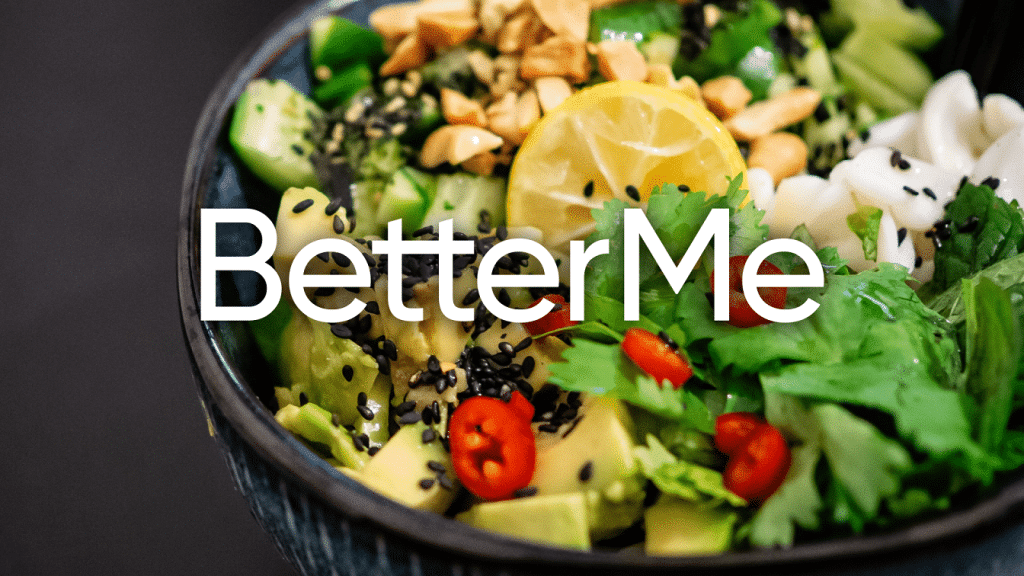Intuitive eating weight loss is a topic that has been around for a while now. While some swear by this weight loss method, many still do not understand it or even how it can work to help them shed those stubborn pounds. If you are among the group that is quite skeptical about achieving weight loss on intuitive eating, then you will be glad to know that you are not alone.
Diet culture is so entrenched in our society that thinking about achieving that perfect body without having to restrict what you eat can seem like a pipe dream or just another fad diet. Unlike restrictive diets that tell you to severely control what you eat so you may achieve your desired body goal, intuitive eating and weight loss not only promises the same results but also gives you a chance to enjoy good food, limits the chance of binge eating, and can even teach you important points on healthy eating.
Read on to find out more about how intuitive eating weight loss could be the game changer that you have been waiting for.
What Is Intuitive Eating For Weight Loss?
Before determining what intuitive eating for weight loss is, we must first determine and understand what the practice is in itself. The National Eating Disorders Association describes intuitive eating as the practice of trusting your inner body wisdom to make choices around food that feel good in your body, without judgment and without influence from diet culture (12).
The article goes further to say that we all have the ability to know when to start and stop eating – we were born with this ability – however, thanks to diet culture, we end up relying on outside forces to determine this for us which can lead to restrictive eating and other harmful feeding habits (12).
So what is intuitive eating for weight loss? This is the use of mindful (aka intuitive) eating as a means to help you shed a couple of pounds. Instead of restrictively watching what you eat, listen to your body and eat when you are hungry and stop when you are full. It is the practice of not having to rely on counting calories, cutting carbs or even letting people around you tell you what and how to eat.
Your body can tell you when to eat and when to stop. You only need to learn how to listen to and trust it.
Read More: 10 Principles Of Intuitive Eating For Those Who Are Eager To Get Off The Diet Roller Coaster
Intuitive Eating Weight Loss: Tips To Help You Shed The Weight While Eating Mindfully
While the above concepts might sound great, breaking out of known societal rules about how to eat to stay thin or lose weight can be hard. This is where the basic principles of mindful food consumption come in. Following these principles and applying them in your day-to-day life is bound to make your intuitive eating weight journey easy to remember and follow.
These tips/principles are as follows (1):
-
Reject Diet Culture
Almost everyday someone comes out with a new diet that promises to help you lose weight quickly, easily, and permanently. While these diets may have some differences in how they are presented, the end result is always the same – regret and disappointment that the said diet did not work on you.
When practicing intuitive eating weight loss, rejecting diet culture means making peace with the fact that there is no quick fix to your ‘weight problem’ and that any shiny and new eating plan is not the fix that you need.
-
Make Peace With Food
Intuitive eating rejects the notion that you need to cut out certain types of food so you can lose weight or even be healthy. To fall in line with this principle, remind yourself that there are no good or bad foods and also strive to see that cravings are not bad. Listen to your body and give it what it needs.
-
Honour Your Hunger
If you feel hungry, eat. It is as simple as that. Dieting culture has made hunger seem like the enemy when in truth it is a biological need that everyone has and we shouldn’t be putting limitations on it.
Do not subscribe to the notion that you only need to eat at certain times – doing this only increases hunger which can drive us to overeating and bingeing which is the opposite of what we want.
-
Once You Are Full, Stop Eating
When dieting, how many times have you looked down at your plate, realized that you weren’t full and longingly wished that you had more food? Sometimes you might have even snuck back to the kitchen for seconds and felt guilty about it.
With intuitive eating weight loss, you will not only learn how to listen to your body and eat when hungry, but you will also learn how to stop eating. Hopefully with this practice, the trend of breaking down and overeating until you cannot walk will be over.
-
Learn How To Appreciate And Savour Your Food
Eating is not just the process of getting the fuel that you need to get you from point A to point B. Eating should be an experience and if not, at least it should be something that we appreciate. Learn how to slow down and enjoy what’s in your plate, bowl, or cup.
Look at the colours, appreciate the different textures and tastes. By doing this simple things, you will not only learn how to appreciate everything that goes into your body, but you will be even more in-tune with your body and learn how to identify the feeling of fullness long before overeating.
-
Stop Policing Your Food
While things like counting calories can be good, they have no place in intuitive eating. Intuitiveeating.org further states that this practice does not believe in good or bad foods either. Learn how to eat without placing guilt on certain food choices because they are too high in calories or are just seen as bad in the eyes of dieters.
-
Deal With Your Emotions Without Using Food As A Clutch
When people talk about the causes of obesity in the world, many forget to mention how emotions can cause some to eat to the point of excess. Through mindful eating, we can learn that emotional eating is not the answer and learn to spot when it starts to happen so we can stop it.
This practice can also help people learn how to deal with difficult emotions without using food for comfort, which can help emotional eaters lose weight.
Whether you’re a workout beast or just a beginner making your first foray into the world of fitness and dieting – BetterMe has a lot to offer to both newbies and experts! Install the app and experience the versatility first-hand!
-
Love And Respect Your Body
What traditional media, magazines and social media will not tell you is that we are all built differently and no amount of dieting will change that. Diet culture has made us all believe that by restricting our food intake, we could end up looking like our favourite celebrities or social media stars.
This is not true. You cannot eat your way into an endomorph body type if your genes, body type, and bone structure are not created like that and any diet that tells you that it can help you do this is lying to you.
-
Move More
Physical exercise is not just a tool for calorie burning. Not only does it boost your metabolism, increase endorphins, improve mobility, balance and more.
-
Gentle Nutrition
Mindful eating does not mean giving up and eating whatever it is that you want. Doing this would go against what you are working towards and will completely ruin your intuitive eating weight loss plans. Just because you are limited by a strict diet does not mean that you gorge yourself on all unhealthy foods. This way of eating is all about balance. Consume what helps keep your body in tip top shape and you feeling your best.
Does Intuitive Eating Work For Weight Loss?
The concept of mindful eating is one that is slowly but surely taking over. In fact a 2019 survey by The International Food Information Council (IFIC) found that 49 percent of people in the United States between the ages of 18 to 34 are familiar with the concept, while about 60 percent of all those surveyed were interested in learning more about mindful or intuitive eating (2).
However, despite its growing popularity and seemingly healthy and reliable principles, is intuitive eating weight loss an achievable concept? Can you truly stop dieting, counting calories, even restricting what and how much you eat and still lose weight?
Yes, you can and several studies have proven that weight loss on intuitive eating is very possible.
- In 2010, a study by the Complementary Therapies in Medicine proved that intuitive eating weight loss obese people can lose weight and keep it off. The study was conducted on 10 obese men from a local Young Men’s Christian Association.
These men were offered 6-weekly 2-hour sessions to teach them about mindfulness meditation, mindful eating, as well as group discussions, with emphasis on awareness of body sensations, emotions, and triggers to overeat. At the end of the study, researchers found that not only had these men reduced their BMI and lost a significant amount of weight, but they seemed less stressed and depressed and had less binge eating episodes (10).
- In 2011, the Journal of Obesity also posted their study findings on the effects of mindful eating on women prone to stress eating. The 47 women were divided into two groups, one which underwent a mindfulness eating program.
After 4 months researchers found that the obese women who underwent the intuitive eating program lost more weight, had less abdominal fat, and were less stressed than those who did not (8).
- As previously, emotions can play a huge part in weight gain especially when coupled with emotional eating. One of the basic principles of intuitive eating is learning how to properly process emotions without using food as a clutch or for comfort. In 2012, a study published by the Behavior Therapy Journal proved that not only can mindfulness prevent/reduce emotional eating, but it can also help obese patients lose weight (3).
- Again in 2012 the Nutrition and Health Journal posted their findings on the weight loss results of intuitive eating subject matter. In their study, they compared the effectiveness of mindfulness eating and calorie restriction. All subjects in both groups were instructed to workout for 30 minutes three times per week and record their daily food intake in a food diary.
Researchers found that 3 weeks into the study, the group practicing intuitive eating weight loss had lost more weight than the group that had been restricting their calorie intake (4).
- In 2018, a study by the Journal of Family Medicine & Community Health continued to prove that intuitive eating weight loss does provide results to anyone who chooses to take part in it. The study participants were separated into two groups – a control group and an ESMMWL (Eat Smart, Move More, Weigh Less) group.
After 15 weeks researchers found that not only did the people in the Eat Smart, Move More, Weigh Less group increase in their mindfulness scores but they also lost more weight than those in the control group (7).
Read More: Intuitive Eating: A Philosophy That Is All About Listening To Your Body
How Much Weight Can Be Lost Via Intuitive Eating?
If you are looking for the specific number of pounds or kilograms that you can lose via intuitive eating then sadly you will not get an answer here. Not because this approach does not work but because we all lose weight at different rates.
One person may try this approach and lose 8 pounds in two months and another might do the same and end up losing just 4 pounds in the same time frame. Just like weight gain, weight loss is also influenced by different factors. According to the Centers for Disease Control and Prevention, these factors include your gender, age, starting weight, how much sleep you get a night, level of daily physical activity, stress levels, and even how much food you are consuming in a day (6).
However, if you still want to track your intuitive eating weight loss results, it is important to note that healthy and sustainable weight loss is the loss of around 1 to 2 pounds per week. This goal is arrived at not by a specific diet or eating plan but through changes to your diet and incorporating physical activity to your daily plan (13).
How Long Does Weight Loss Take With Intuitive Eating?
While we understand the desire to see the pound drops on your bathroom scale, this question might not be the best thing to concentrate on while practicing intuitive eating. Here’s why
If we go back to the 10 basic principles of intuitive eating, one of these principles states that we should love and respect our bodies. Always wondering when the number on the scale will go down goes against this core principle.
Look, we will not pretend that loving our bodies with all the bumps and lumps is an easy thing to do. It is very hard and the situation is made even worse by the images we see all day online, on TV, or even at the supermarket magazine stand with boldly written titles about weight loss, how to be skinnier and a fit model on the cover.
What makes intuitive eating weight loss different from all others is not only the fact that it is not a diet, but it also allows you to concentrate on loving yourself and your food – not just always scrutinizing what’s on your plate.
As we have stated above, weight loss is different for everyone and thus the question of ‘how long does weight loss take with intuitive eating’ does not have one blanket answer. Focus on unlearning what diet culture has taught us all, concentrate instead on practicing the above mentioned core principles and the weight will fall off before you even know it.
Remember that intuitive eating weight loss is just a by-product of mindfulness food consumption – not the main point of the practice.
Dropping pounds by the dozens without putting yourself through the wringer is everyone’s weight loss pipe dream. But what if we told you that the BetterMe app can make that happen? Keep yourself in prime shape with our fat-blasting workouts, delicious budget-sparing recipes, and body-transforming challenges with our app!
Vegan Intuitive Eating Weight Loss: Can It Be Done?
As we understand it, mindful eating is a non-diet approach that was established by Evelyn Tribole and Elyse Resch, in the 1990s. This is a way of eating that calls for non restrictive eating and urges people to honor their hunger cues, accept that all food can be consumed, and above all stop food policing.
According to some, because plant-based diets often restrict certain foods, they are not okay as a part of mindful eating since they still restrict. So can one truly practice intuitive eating while being vegan? We say yes and no. It all depends on you. Why did you start veganism in the first place?
The truth is that most people start this diet as a way to lose weight. After all, research has shown that plant based diets such as veganism offer higher weight loss results than other eating plans (11). If your reason for practising veganism as a diet is weight loss then some might consider your vegan intuitive eating as controversial since you are willingly restricting and depriving yourself of certain foods.
However, if you are a vegan for ethical, social, and environmental reasons and not actively using the diet to lose weight then this might be less of a controversial reasoning (9, 5). Irrespective of your reasons for choosing this plant-based diet, vegan intuitive eating weight loss will happen.
The Bottom Line
Intuitive eating weight loss is more often than not a by-product of learning how to consume foods more mindfully. With that being said, it is important to note that approaching this eating style with the main aim of losing weight is bound to turn it into a diet – albeit subconsciously. Instead of trying this way of eating for the specific reason of losing a couple of pounds, we suggest that you use it as a way to get to know and accept your body better as well as to improve your overall eating habits. IF you do this and also learn how to exercise more, the weight will eventually fall off.
DISCLAIMER:
This article is intended for general informational purposes only and does not address individual circumstances. It is not a substitute for professional advice or help and should not be relied on to make decisions of any kind. A licensed physician should be consulted for diagnosis and treatment of any medical conditions. Any action you take upon the information presented in this article is strictly at your own risk and responsibility!
SOURCES:
- 10 Principles of Intuitive Eating (n.d., intuitiveeating.org)
- 2019 Food & Health Survey (2019, foodinsight.org)
- An acceptance-based behavioral intervention for weight loss: a pilot study (2012, pubmed.ncbi.nlm.nih.gov)
- Assessing the effectiveness of intuitive eating for weight loss – pilot study (2012, pubmed.ncbi.nlm.nih.gov)
- Fight Climate Change by Going Vegan (n.d., peta.org)
- Healthy Weight, Nutrition, and Physical Activity (2021, cdc.gov)
- Mindful Eating and Weight Loss, Results from a Randomized Trial (2018, jscimedcentral.com)
- Mindfulness Intervention for Stress Eating to Reduce Cortisol and Abdominal Fat among Overweight and Obese Women: An Exploratory Randomized Controlled Study (2011, pubmed.ncbi.nlm.nih.gov)
- New estimates of the environmental cost of food (2018, ox.ac.uk)
- Pilot study: Mindful Eating and Living (MEAL): weight, eating behavior, and psychological outcomes associated with a mindfulness-based intervention for people with obesity (2010, pubmed.ncbi.nlm.nih.gov)
- The BROAD study: A randomised controlled trial using a whole food plant-based diet in the community for obesity, ischaemic heart disease or diabetes (2017, pubmed.ncbi.nlm.nih.gov)
- What Does Intuitive Eating Mean? (2018, nationaleatingdisorders.org)
- What is healthy weight loss? (2020, cdc.gov)
















